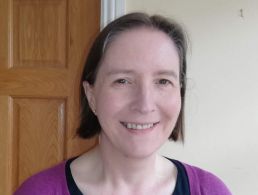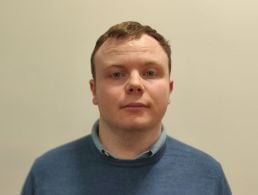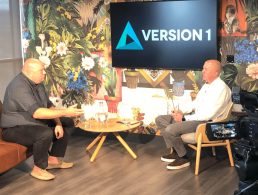Evervault’s Hannah Neary talks about the skills she uses as a product engineer and the effects of the growing SaaS industry.
Hannah Neary is a product engineer at Evervault, the infosec start-up that was founded in 2018 by Dubliner and former BT Young Scientist winner Shane Curran. The company raised $16m in Series A funding in 2020.
Before joining Evervault, Neary spent three years at Workday and a year at Afterpay. She initially turned down a spot on Evervault’s founding team to move to Australia, but later returned to Dublin and joined the company.
Describing a typical day in her role, Neary said the company is quite atypical in that it doesn’t do daily stand-up meetings, opting instead for weekly ones on Tuesdays.
“This means mornings are generally quiet, which I love because it gives me more time to work on features and do research,” she said.
“We have lunch at 12.30pm and usually all eat together. One of my favourite parts of working at Evervault is that you get to know everyone rather than just those in your area. We get free lunch and we love to try out different restaurants as a team.”
She said one of the benefits of working as a product engineer at Evervault is that she gets to hear directly from customers how the product is performing. “I enjoy speaking directly with customers, something I didn’t get to do in my previous jobs.”
‘Our goal is to encrypt the web and render these data breaches redundant’
– HANNAH NEARY
What types of projects do you work on?
I’m currently working on a project that will make it easy for developers to write their own code and deploy it to a trusted execution environment (TEE).
We want engineers to be able to write code easily, and we’ll deploy it so they can obtain the security guarantees without having to spend weeks or months figuring it out themselves. It’s a challenging project, but that just proves how important it will be for developers.
We’ve already heard from users that, while they want to use TEEs, it’s extremely difficult for them to build the necessary infrastructure to get their applications running on them, and they want to focus their time and energy on building their products.
We’re always exploring new ways to encrypt and secure the web. We want to prevent plain text data breaches and safeguard our clients. There are some companies offering tokenisation, but they still store the sensitive user data on their infrastructure.
With Evervault, we manage the keys and the customer stores the encrypted data. We also provide environments where the customer can write code that will be run on encrypted data without ever needing to see it in plaintext.
What skills do you use on a daily basis?
Software engineering is far more creative than most people realise, particularly at this early stage. When faced with a new challenge, it’s necessary to think creatively, experiment and try out different ideas.
Some of these ideas will work, others won’t. It’s part of the process. In the planning phase of a project, we know what we want, but we need to figure out how to get there. The solution is usually the combination of our research and creative problem-solving.
Communication is another underappreciated skill in software engineering. When people think of software engineers, they often think of people working on their own.
At some companies, it can be easy to exist in a bubble and not engage with the whole team. That’s not how we work at Evervault. Everything is collaborative, and we put in the effort to gel as a team.
What are the hardest parts of your working day?
One of the hardest parts of planning my day is the variety of my work and the context switching that comes with it. Engineers at Evervault work on every aspect of the product. I find a lot of my time, I switch between typical feature work, looking at customer queries or monitoring how our production systems are doing.
We have sensitive alarms on all our production services because of how critical they are. As the on-call engineer, you typically spend some time during the week looking at how you can stop them from occurring again. I find it’s a pretty good way of knowing all parts of the system and how we can improve it.
Do you have any productivity tips that help you through the day?
Movement makes me much more productive. Running before or after work helps with concentration and productivity. It also helps me get my thoughts together for the day.
I use a text editor to keep track of my work; it’s my stream of consciousness during the day. I’ll scribble down my notes to remember exactly where I was if I move on to something else. Doing this reminds me exactly where I am when I return to a task.
Remembering your steps while debugging a problem is crucial so you can jump straight in.
What skills and tools are you using to communicate daily with your colleagues?
We use Slack for all team and client interaction and Notion to document engineering design. I’m grateful to be part of a tight-knit group. We stick together and help each other when challenges arise. It’s one of my favourite aspects of being a product engineer.
One of my colleagues started Fika Fridays (a coffee and cake break). She’s Swedish and it’s a massive part of her culture – we’ve loved sharing it with her.
One of the team will bake, and the rest of us get to enjoy the pastries. It’s an excellent opportunity to get to know everyone on a more personal level. Before this, I had no clue what fika was, but now I think every workplace should do it. It’s little things like this that help us to maintain and strengthen our culture.
How has this role changed as this sector has grown and evolved?
A definite trend that has been happening over the last few years is using SaaS wherever it makes sense. Using Stripe for payments, Twilio for SMS, the list goes on. It’s not impossible to implement these systems, but it’s hard to do it right.
Even if you implement the ‘perfect’ system, you need to maintain and upgrade it for the rest of its lifetime. It’s generally more effective to outsource it to an industry leader with tight SLAs instead of looking after it in-house. Developer time is precious, and you want it spent on creating the product you want to sell.
People are becoming more aware of how valuable their data is and how it needs to be protected. I’ve noticed an increased concern among family and friends about how their data is being used compared to five years ago.
I think this is a great thing, and the industry is slowly catching up with the need to gain customers’ trust. Many of the tools you sign up for probably have no reason to see your personal data other than your name. The rest can be encrypted and never in plain text on their infrastructure. I think we will see more companies avoiding handling plain text data where it’s unnecessary.
What do you enjoy most about the job?
The idea that we are redefining the rules of data protection is exciting. The HSE hack had a significant impact in Ireland and made people aware of how vulnerable we are to cyberattacks.
Our goal is to encrypt the web and render these data breaches redundant. If we’re successful in our mission, it will fundamentally change the internet. Few people get the chance to work on a product where they can see the real-life impact. That opportunity is the most enjoyable part of my job.
10 things you need to know direct to your inbox every weekday. Sign up for the Daily Brief, Silicon Republic’s digest of essential sci-tech news.




